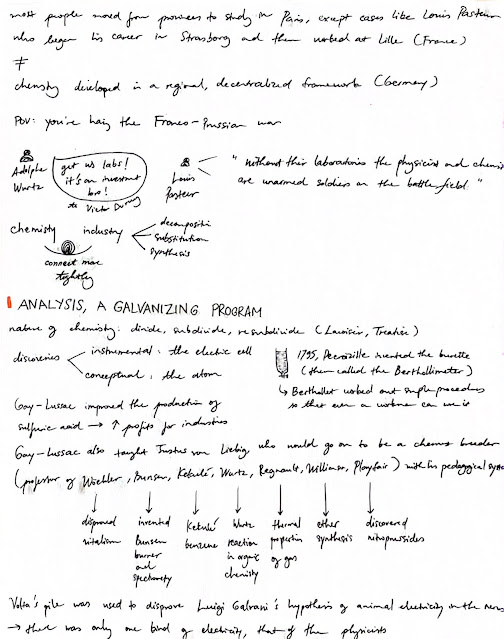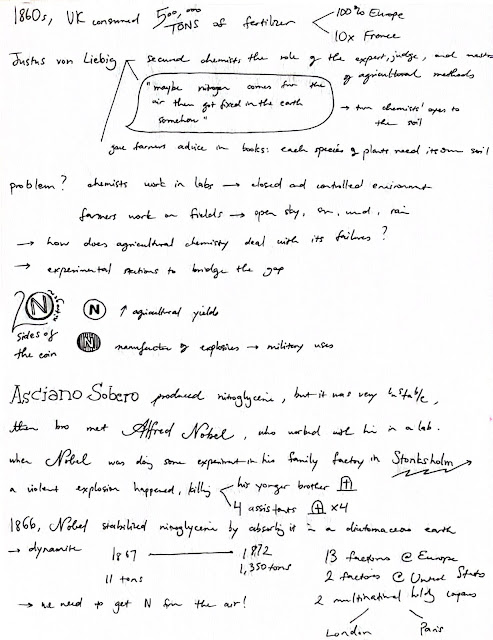a history of chemistry
I don't quite remember how, but my agenda for books this year is getting comfortable with hard materials. readings for my philosophy class aside, I've been doing some reading in my major, specifically chemistry, just to know more about it and understand the social changes it brought about.
non-fiction books are lowkey like the chocolate in candy crush saga. you either read them in one go or you keep rereading the same part over and over again and never finish. I must have read the introduction at least 5 times, and it's only until later on that I sit down with my pen to take note and keep track of my progress. it was a tough read, but by the end, I really appreciate being a chemistry student in the 21st century, because it was so confusing and hard to learn chemistry back then when you (1) don't have a system to understand things (it was still very confusing after the periodic table, and even more confusing before that) and (2) are a woman (I don't think I can really participate in scientific academia as a woman back then). so now, I step into chem lectures with 1% more gratitude understanding that it could have been more difficult than that.
here are the notes that I kept as I flip through the pages and immerse myself in the world of chemistry. although I don't understand all of what I read, I tried my best to simplify what I understood and make illustrations for them. my favorite part is probably those concerning lavoisier, european dye competition and dye synthesis, also how the cold war influences weapon industries, where you see many sectors at play as they weave the history of chemistry. I also learn that I have this dopamine rush after drawing synthetic pathways for organic compounds. or sometimes just from staring at them. I have to say that hexagons, specifically benzene, has a very soothing effect on the mind if you look at them long enough. it's hard to explain but these days NileRed is lowkey my entertainment beside twilight.
my favorite part about learning chemistry and philosophy will always be about the people. in chapter III, we learn about Gay-Lussac, who taught Justus von Liebig, the breeder of these chemistry legends
- Woëhler, bro lowkey disproved vitalism by producing urea from ammonium cyanate
- Bunsen, yes, the Bunsen burner is named after him; he also contributed a ton to spectrophotometry
- Kekulé, the benzene bro; he dreamed of a snake eating its own tail and come up with the model with delocalized pi electrons
- Wurtz, known for Wurtz reaction in orgo
- Regnault, known for his work in gas thermal properties
- Williamson, known for his development of ether synthesis
- Playfair, known for the discovery and investigation of the nitroprussides
I also came across a phrase I really like by the end of the book. promethean dreams come true every day. it probably talks about humans playing gods, but in a good way. for me, I like to think about it as understanding that the most mundane and human dreams for a better world do come true. truth is, humanity is quite fucked up. however, the fact that you choose faith and trust instead of the seduction of despair and doomerism like prometheus did is what really inspires me.
happy reading and don't freak out if you don't understand something, because honestly, neither do I.































Comments
Post a Comment